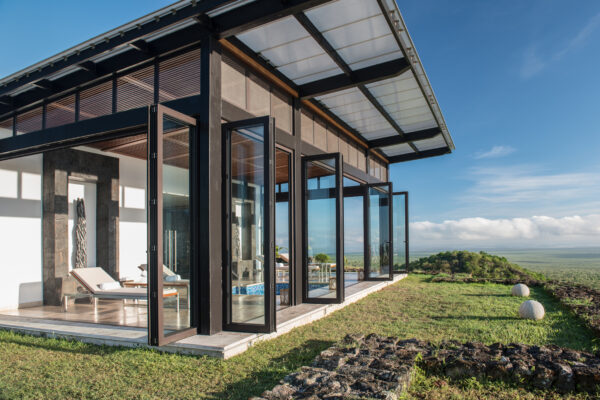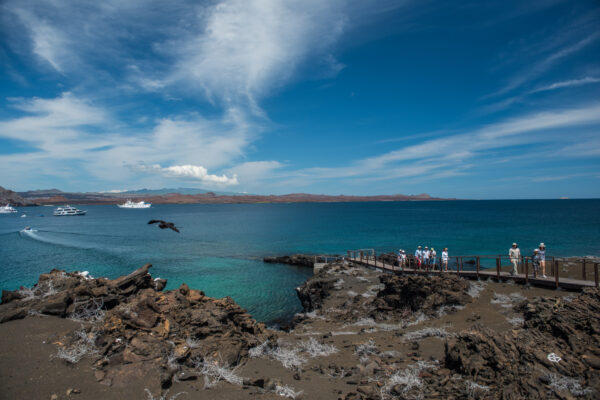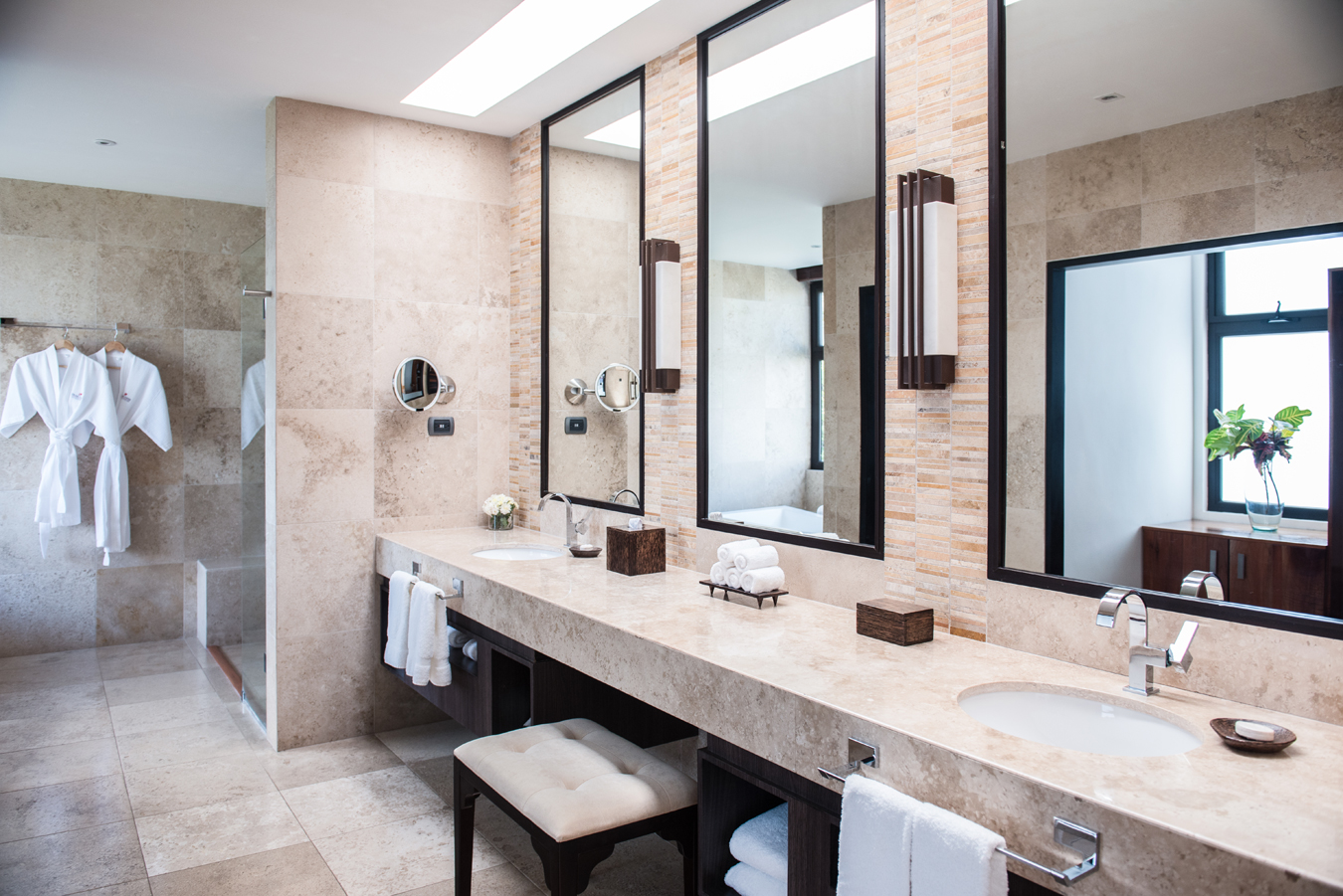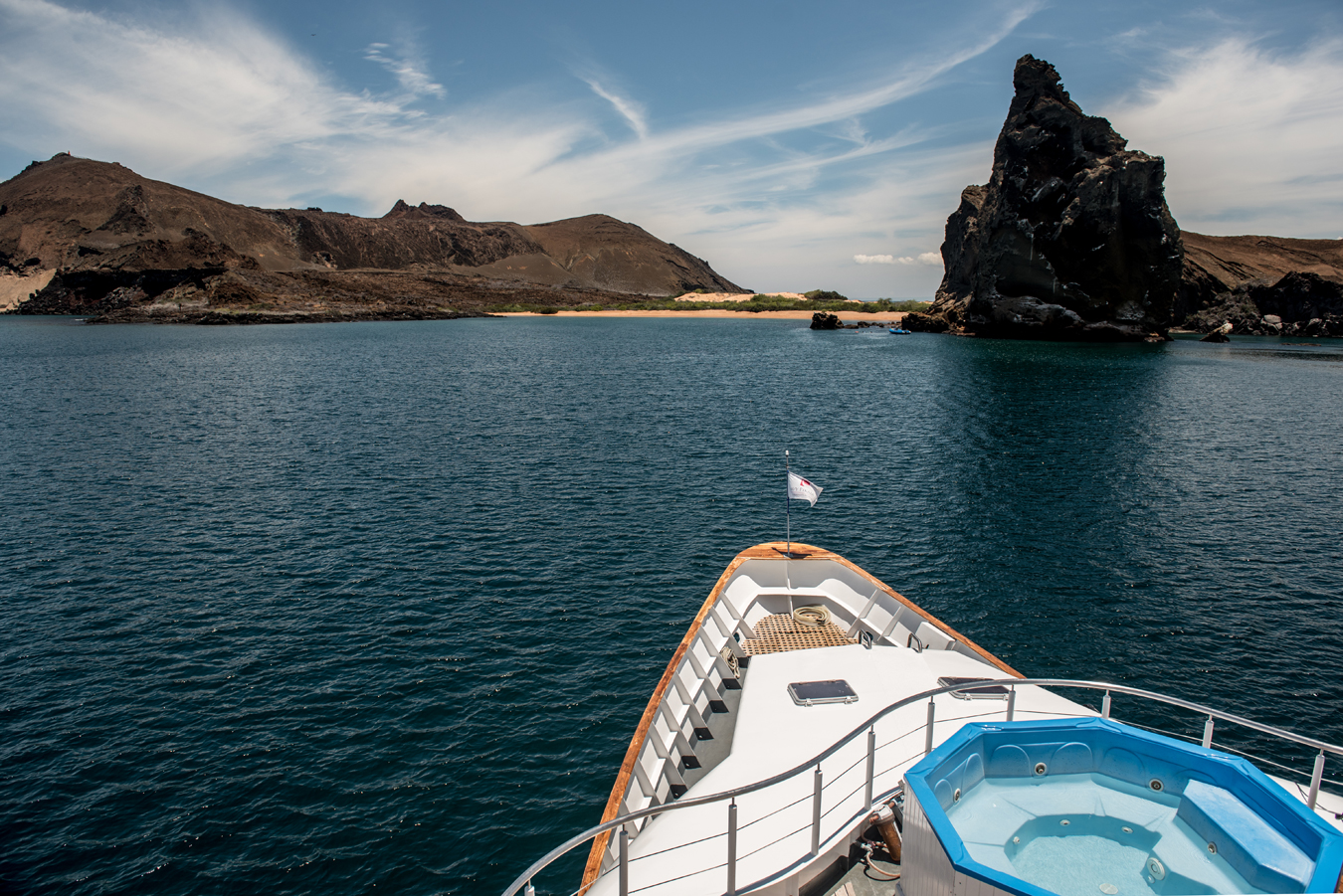Every world destination faced with an influx of curious people hoping to visit is forced to ask itself the same question: how many tourists are too many tourists?
First, there is the issue of how throngs of individuals diminish the experience of something—try squinting at the Mona Lisa in the Louvre, behind 10 rows of squawking people with cameras held above their heads, and you’ll understand this problem; second, there is the query of what an abnormal amount of human contact does to a place’s land and wildlife.
There is perhaps no destination exploring these concerns more often than the Galapagos Islands in Ecuador. Governed as a national park, the archipelago made famous by Charles Darwin sets stern rules for its visitors, planning out the schedule of every single tour operator and outlining specific footpaths on each island that people cannot veer from. On the more grassroots level, though, are some local businesses doing everything they can to keep their environment thriving, and a shining example is Pikaia Lodge.

Located on Santa Cruz Island, one of the few inhabited by humans, Pikaia shows how luxury hospitality can be done in a low-impact way. “There have always been a couple of very strong points for the property regarding sustainability and being as responsible as possible to the environment,” says Pikaia’s general manager Andrew Balfour, sitting on the sleek patio that overlooks the island’s sweeping knolls. “I remember living here when there were only 1,000 people in town; now we’re up to 24,000. People who grew up here have seen it for many years and have always been skeptical about growth and where things are going. And seeing this whole concept of high-end with a strong component towards sustainability and social responsibility with low amounts of tourists always made sense, and I think it’s a good way to go for Galapagos.”
With only 14 rooms and specializing in three-, four-, and seven-night packages, Pikaia’s guest turnover is minimal, immediately lessening its impact. Beyond that, the lodge undertook a reforestation project that has seen 9,000 trees planted; it collects and reuses rainwater; and it boasts an initiative in which guests are invited to pack some education supplies in their luggage that Pikaia distributes to a few local schools. Further emphasizing the importance of the community, 85 per cent of the hotel’s staff is from the Galapagos.

Something else that sets the resort apart is the fact that it is on land. The islands have traditionally been seen by boat, with passengers sleeping on board and waking up to a new landscape each morning. But for those who get seasick or just prefer more time poolside (indeed, Pikaia’s infinity pool is one for the books), the hotel offers a fantastic program for seeing some of the closer islands on day trips. “We get lots of guests who say, ‘Look, we’ve been wanting to come to the islands, but we never wanted to be stuck on a boat for a long time,’’’ says Balfour. Armed with some of the best naturalists (tourists can only visit the uninhabited islands with a registered nature guide), Pikaia guests head out on the lodge’s private yacht to partake in land walks and snorkelling. And unlike most day trip operators, Pikaia’s boat has individual cabins for each guest so that a nap or a shower are readily possible.
When not out with a naturalist, guests can enjoy the delicious, locally sourced food from Pikaia’s restaurant, and take a steam or a soak in the spa. The property is also located right next to Cerro Mesa, a privately-owned park with a short hike uphill to an amazing viewpoint or a longer walk down into the mouth of an old crater.
But it proves hard to leave the hotel property—or even the hotel room, for that matter. With vast floor-to-ceiling windows, reading in bed becomes a mystical affair; and a separate lounge corner with an HD LED television means late-night movies are a must.
Pikaia is special, every detail perfectly placed, every staff member warm and attentive—but beyond the opulence, beyond the extreme comfort, is the beautiful knowledge that this place truly looks after and respects its surroundings.
Support independent publishing and buy your copy of our Summer 2017 issue.



















